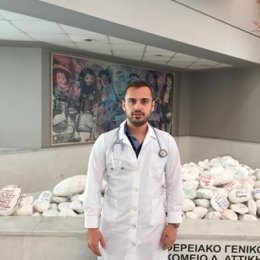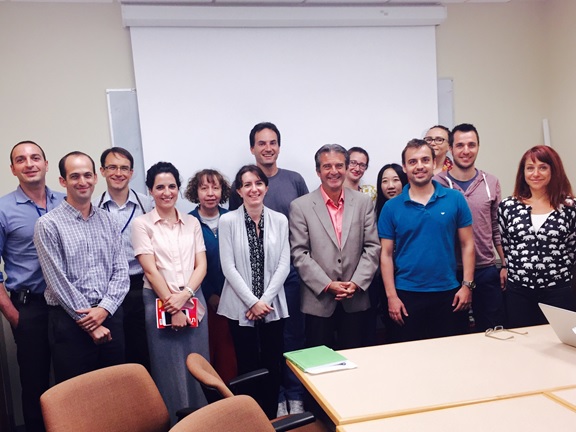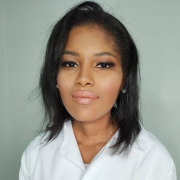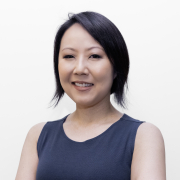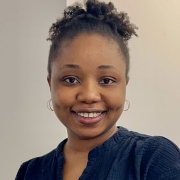What do you consider to be your substantial scientific contribution so far (provide Pubmed PMID if possible)?
Among a number of other ongoing projects, our lab recently discovered that Xq26 microduplications and GPR101 mutations are involved in gigantism and acromegaly, respectively. Before this discovery, only a few things were understood about the genetics of these two diseases (PMID: 25470569). A number of projects in the laboratory are also focusing on the clinical and molecular investigation of endocrine hypertension.
What is your favourite manuscript from a lab or mentor other than your own (provide Pubmed PMID if possible)?
As I mentioned above, I am impressed with the relationship between endocrine abnormalities and hypertension. So, one of my favorite manuscripts that describes this relationship as well as the response of the pediatric patients with Cushing syndrome to the provided surgical therapy was published from our lab at 2009 (PMID: 19293264)
What facilities are essential for your research?
What I like most in our laboratory, is that all the researchers are working as a team and are willing to help new students like me whenever we need their help. They all, and especially Dr. Fabio R. Faucz, help me with whole exon sequencing of many different genes, as I am trying to find mutations in specific genes which are involved in endocrine diseases.
Where do your research strengths lie? Why? What are your research weaknesses? How will you improve?
I like becoming better day after day and I love learning new things from people who are more experienced than me in research. This is very important, as I am working in a lab with many experienced researchers, and because of my willingness and patience to listen to them, I don’t stop learning new things and becoming more confident with research. As for my weaknesses, I don’t like statistics. But I study hard and I should continue this effort as research relies heavily on statistics.
Describe your unforgettable (proudest) moment in science, and the most challenging situation that you have had to overcome (lessons learnt) so far?
Of course, my proudest moment in science was when I was accepted as a special volunteer at the NICHD. I knew that it would be one of the greatest experiences of my career, and now I enjoy working hard to help the laboratory achieve every target.
How did you learn about ISH/NIN and its activities?
I learned about ISH/NIN from Fady Hannah-Shmouni, MD.
Who is your role model in Science? Why?
My role models in science are Dr. Constantine A. Stratakis and Dr. Fabio R. Faucz. Dr. Stratakis who is one of the most experienced doctors and investigators on Endocrinology and Genetics in the world. In addition to a deep understanding, and ability to explain in a very simple way, the pathophysiology of the diseases, he is a person who is born to be a leader. He remembers everything and everyone, he is unique at organizing the lab and motivating researchers to do their best and he is a very approachable person for his patients as well as for other doctors, researchers and students.
Dr. Faucz is one of the most hard-working researchers in the lab. Although he is very busy, he is always willing to help everyone who needs his advice and guide new students. Moreover, he is a very polite as well as very patient. He is a very successful researcher and a very smart person.
Are you involved in other scientific or career associations? If yes, how is it helping in your career advancements?
I am interested in the vision of ISH and will look forward to becoming involved with NIC.
What are your scientific goals? Advise for talented emerging scientists?
I strongly believe that there is no progress in medicine without science and science is a very good way for deeply understanding medicine. I encourage medical students and emerging scientists to find time for science, even if they are very busy. They will recognize how fascinating science is and they will love it.












